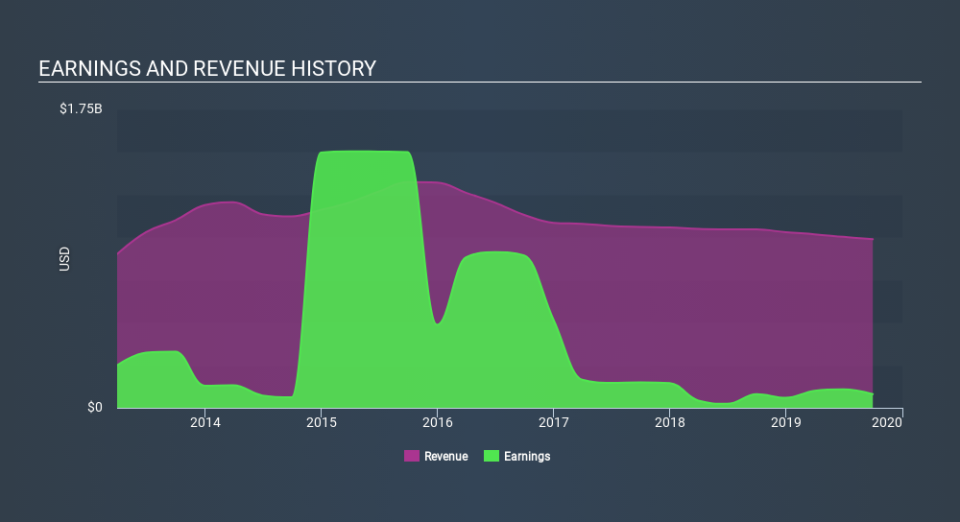What Kind Of Share Price Volatility Should You Expect For The Macerich Company (NYSE:MAC)?

If you own shares in The Macerich Company (NYSE:MAC) then it's worth thinking about how it contributes to the volatility of your portfolio, overall. In finance, Beta is a measure of volatility. Volatility is considered to be a measure of risk in modern finance theory. Investors may think of volatility as falling into two main categories. First, we have company specific volatility, which is the price gyrations of an individual stock. Holding at least 8 stocks can reduce this kind of risk across a portfolio. The other type, which cannot be diversified away, is the volatility of the entire market. Every stock in the market is exposed to this volatility, which is linked to the fact that stocks prices are correlated in an efficient market.
Some stocks mimic the volatility of the market quite closely, while others demonstrate muted, exagerrated or uncorrelated price movements. Beta is a widely used metric to measure a stock's exposure to market risk (volatility). Before we go on, it's worth noting that Warren Buffett pointed out in his 2014 letter to shareholders that 'volatility is far from synonymous with risk.' Having said that, beta can still be rather useful. The first thing to understand about beta is that the beta of the overall market is one. A stock with a beta greater than one is more sensitive to broader market movements than a stock with a beta of less than one.
Check out our latest analysis for Macerich
What does MAC's beta value mean to investors?
Zooming in on Macerich, we see it has a five year beta of 0.81. This is below 1, so historically its share price has been rather independent from the market. This means that -- if history is a guide -- buying the stock would reduce the impact of overall market volatility in many portfolios (depending on the beta of the portfolio, of course). Share price volatility is well worth considering, but most long term investors consider the history of revenue and earnings growth to be more important. Take a look at how Macerich fares in that regard, below.
Could MAC's size cause it to be more volatile?
Macerich is a reasonably big company, with a market capitalisation of US$3.6b. Most companies this size are actively traded with decent volumes of shares changing hands each day. When large companies like this one have a low beta value, there is usually some other factor that is having an outsized impact on the share price. For example, a business with significant fixed regulated assets might earn a reasonably predictable return, regardless of broader macroeconomic factors. Alternatively, lumpy earnings might mean minimal share price correlation with the broader market.
What this means for you:
One potential advantage of owning low beta stocks like Macerich is that your overall portfolio won't be too sensitive to overall market movements. However, this can be a blessing or a curse, depending on what's happening in the broader market. This article aims to educate investors about beta values, but it's well worth looking at important company-specific fundamentals such as Macerich’s financial health and performance track record. I highly recommend you dive deeper by considering the following:
Future Outlook: What are well-informed industry analysts predicting for MAC’s future growth? Take a look at our free research report of analyst consensus for MAC’s outlook.
Past Track Record: Has MAC been consistently performing well irrespective of the ups and downs in the market? Go into more detail in the past performance analysis and take a look at the free visual representations of MAC's historicals for more clarity.
Other Interesting Stocks: It's worth checking to see how MAC measures up against other companies on valuation. You could start with this free list of prospective options.
If you spot an error that warrants correction, please contact the editor at editorial-team@simplywallst.com. This article by Simply Wall St is general in nature. It does not constitute a recommendation to buy or sell any stock, and does not take account of your objectives, or your financial situation. Simply Wall St has no position in the stocks mentioned.
We aim to bring you long-term focused research analysis driven by fundamental data. Note that our analysis may not factor in the latest price-sensitive company announcements or qualitative material. Thank you for reading.

 Yahoo Finance
Yahoo Finance 
